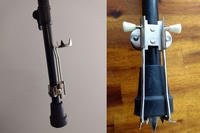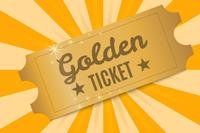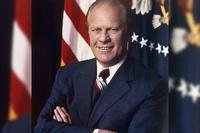Whether you're a recent graduate seeking your first position or an experienced professional in search of a new opportunity, attending job fairs is one way to network and find job leads. Job fairs allow you to meet hiring managers from various companies and industries -- all housed under one roof for the day.
These tips will help you make the best impression.
1. Research Job Fair Companies
"When meeting candidates at job fairs, I like to see that they've done their research," said Louis Dennis, a human resources representative for State Farm Insurance in Greeley, Colorado, who regularly recruits employees by attending job fairs. "Folks who can sit down with me already knowing something about the company and the types of jobs they're interested in are very impressive to me."
Related: Find upcoming job fairs.
It's usually possible to obtain a list of employers participating in a job fair ahead of time. The best-prepared candidates will have already spent time researching corporate cultures, missions and open job opportunities posted on resources like Monster or employer websites. "If someone can say to me, 'I'm interested in underwriting or claims' and can back up why they're a good fit, I'm immediately going to be impressed," Dennis said.
2. Develop Multiple Versions of Your Resume
After you've done your homework, tailor your resume based on your job objective and consider bringing multiple versions to the career fair, says Christina MacGill, associate director of career programming for career services at Penn State.
"Once candidates have done their research on participating companies, they can create a few different resumes targeting these," MacGill said. "For example, someone interested in finance can research typical job titles and types of responsibilities and then create several different versions accordingly. They also might create one resume targeted to working for banks and another one tailored to working for the finance division of a large firm like GE."
Related: Does your resume pass the 6-second test? Get a FREE assessment.
You should also prepare a general resume without a specific objective. "That way, candidates can be prepared for any situation at a job fair by keeping their options open and having multiple resume versions ready to go," MacGill said.
Creating so many resumes can be tough, so think about having a few of them created for you professionally and use them as a template for future versions.
3. Cut Through the Clutter
Brevity is crucial on resumes handed out at job fairs. "When I'm at a job fair, where the line can get 8-10 deep of people waiting to talk to you, I cringe when I see a resume that's more than a page and a half long," Dennis said.
"If the resume is cluttered and not easy to read, this is a problem," said MacGill, who coordinates career fairs at Penn State. "Employers get so many resumes at career fairs, and you've got to make sure your resume is easy on the eye, with the main information easy to pick up and quickly scan."
4. Bring Supporting Documents
Additional documents that could help support your qualifications will depend on your industry and career goals, but they may include a cover letter, professional portfolio, transcripts (usually for new graduates), reference list, letters of recommendation and job applications.
Use the information uncovered during your research to guide your cover letter development. You may have found names of HR managers, position openings and job requirements that will help you customize your letters. If you don't have this information, write a cover letter to go along with each resume version. The letter should provide an overview of your qualifications that meet the goal the resume specifies.
At the same time, supporting documents aren't as important as your resume, and some hiring managers won't be interested in dealing with the extra paperwork. Dennis says cover letters aren't necessary at a job fair.
5. Follow Up
Request a business card from each hiring manager and jot down a few notes immediately after each conversation; this will help refresh your memory when you follow up. Email or mail a thank-you note within 24 hours of the job fair.
"When I've met someone promising, I'm looking for them to follow up," Dennis said. "If they do, that's a sign of serious interest." Emailing about once a month should suffice.
"We also recommend that after you meet with someone and learn more about specific positions, alter the resume and send an updated, customized version to the person you spoke with right away," MacGill said.
Related: For the latest veteran jobs postings around the country, visit the Military.com Job Search section.
The Next Step: Find the Right Job
Whether you want to polish up your resume, find veteran job fairs in your area, or connect with employers looking to hire veterans, Military.com can help. Sign up for a free Military.com membership to have job postings, guides and advice, and more delivered directly to your inbox.











